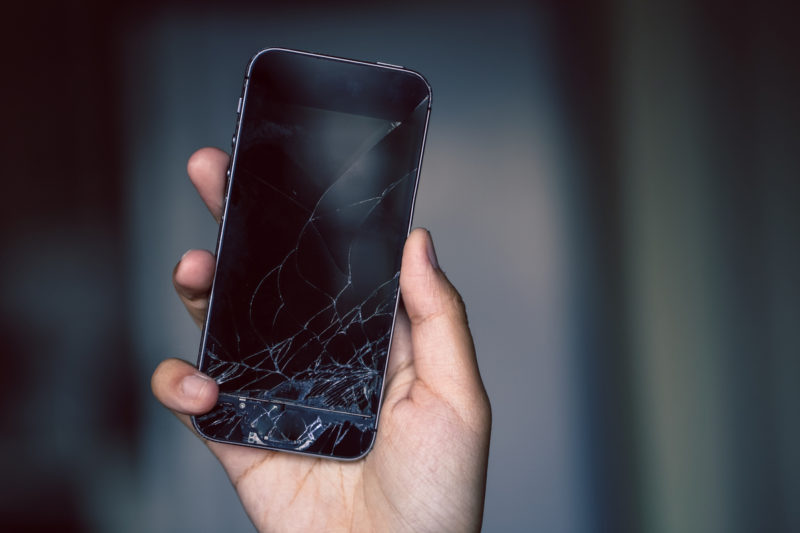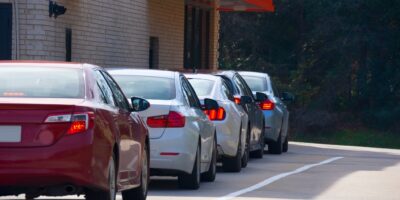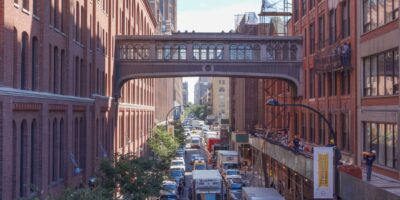My Busted iPhone Did Not Help the Economy

Truth be told, I’m something of a klutz. This was evident in August when I was at the gym and dropped my phone. The phone landed just so, and the edge bent in just such a way as to make it irreparable. If I wanted a phone, I was going to have to buy a new one. I had declined Apple Care coverage when I’d picked up the new phone a couple of weeks before, so this was going to be a pretty substantial hit ($438 after tax, in fact). That I was paying so much to replace a two-week-old phone stung quite a bit.
But, you might be tempted to respond, it was bad for you, but it’s good for the economy. After all, it created work for the person who checked you in at the Apple store, not to mention the people at the Genius Bar who helped you evaluate your old phone and get a new one. And need we mention the people involved throughout the process, from mining to manufacturing to distributing to accounting? By breaking your phone, you’re creating opportunities for people who analyze supply chains and operations — if no one ever broke their phone, we wouldn’t need anyone to analyze inventory management practices so as to try to ensure that they have the right number of phones on hand at any given moment. ’Twas a curse for you, but a blessing insofar as it encouraged the national labor.
That’s a superficially appealing story if you listen to how people report on and discuss the economic effects of natural disasters and wars. It’s misleading, though, because it doesn’t think past Stage One, to use Thomas Sowell’s way of putting it in the subtitle to his book Applied Economics: Thinking Beyond Stage One. The argument above is a straightforward indulgence of the broken window fallacy, named for the example that started Frederic Bastiat’s “That Which Is Seen and That Which Is Not Seen.” It only takes account of what is immediate and obvious (what is seen) and it ignores what is remote and opaque but no less real (what is not seen).
My broken iPhone was 100 percent tragedy with no silver lining. Let me count the ways: first, there’s the time I spent driving to and from the Apple store. I was taking up valuable road space — during rush hour, no less — as I needed to get my phone fixed or replaced quickly as I had an out-of-town trip the next day. Second, I burned gas that I otherwise could have used for something fun like a family trip to Six Flags or for something boring like getting to and from work. Third, I burned a lot of time I otherwise could have spent doing something else, like exercising (believe me, I need it).
The costs don’t stop there. The Apple Store is a busy place with a lot going on. I’ve taken several of their “Today at Apple” classes, and their associates spend a lot of time helping people figure out how their products work. The time and attention they had to spend helping me was time and attention they could have spent helping people learn how to take better photos, organize their documents, or simply turn their iProduct on and connect it to a wireless network. All of that goes up in the figurative smoke of my broken iPhone and the time we spent replacing it.
Then there’s the $438 I spent on the phone itself. Four hundred dollars went to Apple, and $38 went to various taxing authorities. My mind boggles when I think of the other things I could have done with that $438. I could have bought a plane ticket and gone to visit my sister in Minneapolis. I could have bought a plane ticket and gone to visit my other sister in Houston. I could have taken my family out for several very nice meals. If you’ve never visited, Birmingham, Alabama, is an amazing food city: a couple of years ago, Highlands Bar & Grill finally won the James Beard Award, and there are a lot of other excellent places to eat. Alas, we had to forgo all that because I spent the money replacing my phone. I could have bought a new suit or a new pair of shoes or some books, which would have filled the pockets of the tailor, the cobbler, or the bookseller. I could have just saved the money and not spent it, in which case it would have left resources available for a business that needs to finance an investment — an investment in iPhones for its staff, perhaps.
Had I not broken the phone, then I would have “iPhone + something awesome.” Having broken the phone, though, all I have is “iPhone” — or more accurately, “iPhone + regret.” The world is worse off to the tune of whatever else I could have done with the money I spent replacing my phone.
But surely something good came of it. Didn’t it inspire you to write this article? It did, and as luck would have it, I broke my phone shortly before the semester started and therefore had a fresh example I could discuss with my class. As the father of three children, though, if there’s anything I have in super-abundance, it’s real-life examples I can use to draw on the unseen costs of broken windows (three of them are literally about broken windows). As for this article, had I not broken my phone, I probably would have written about something else.
This all seems obvious when you think about it: the world is poorer to the tune of what I didn’t spend $438 on. The problem, though, is that a lot of people don’t think about it and instead indulge popular but wrong claims about multiplier effects. This thinking — or more accurately, this unthinking — pervades the popular understanding of natural disasters, wars, taxes, stadium subsidies, arts subsidies, and all sorts of other things that amount at best to a mere redirection of resources.
If the story has a moral, it’s this: you should probably just be more careful with scarce resources that have alternative uses. I know I plan to be.










